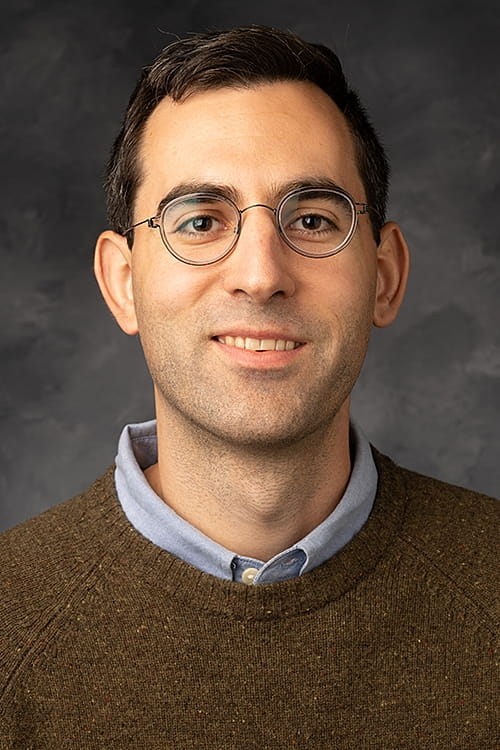
Thomas Ptashnik, PhD student, management and entrepreneurship
Tracks altruism throughout a career
“Thomas’s research is impactful, both from an academic and practical perspective. His meta-analysis on prosocial behavior was accepted at Psychological Bulletin, one of the premier journals in Psychology, with an impact factor of 17.74. In addition, this research has been featured by Fast Company, which demonstrates its practical value to employees who wonder whether being nice impacts their success.” -Jennifer Nahrgang, professor and director, graduate studies, management and entrepreneurship
Hometown: Atlanta, Georgia
Faculty mentor/advisor: Rong Su, PhD, associate professor, management and entrepreneurship and Pioneer Research Fellow
What is your degree program and expected graduate date? PhD, Department of Management and Entrepreneurship, May 2023
Please describe your research: Common wisdom maintains that money corrupts; however, a growing movement called “earning to give” seeks to buck this notion by making as much money as possible to maximize charitable donations during one’s career. My research empirically examines which side of this debate is correct while seeking to help academics better understand how people fundamentally change during their careers. Specifically, I track people across their careers and determine if attaining success causes a feedback loop in which they became singularly focused on material goals at the expense of prosocial ones.
In simple terms, why does this research matter? My research attempts to clarify how individuals can most effectively use their career choice to make a positive social impact. Pursuing a lucrative career with the intent of donating a large portion of the earnings to charity (e.g., earning to give like Sam Bankman-Fried) appears to indeed be a risky strategy, given that my data shows career success can diminish over time the desire to help others. A practical implication of my work is that individuals intent on dedicating their careers to improving the world would generally be better off working in jobs that directly address the problems they hope to solve.
How soon after starting at the University of Iowa were you able to participate in research? I have been participating in research since the start of my first semester.
How has being involved in research made you more successful at the University of Iowa? Research has enabled me to collaborate with numerous talented colleagues in the Department of Management and Entrepreneurship, motivated my coursework, helped me develop my identity as an academic, and, most importantly, has satisfied my own desire to make a meaningful, positive impact.
What are your career goals and/or plans after graduation? I aspire to become a professor so I can continue researching topics that fascinate me and teaching the next generation of changemakers.
Banner location: not on display—
